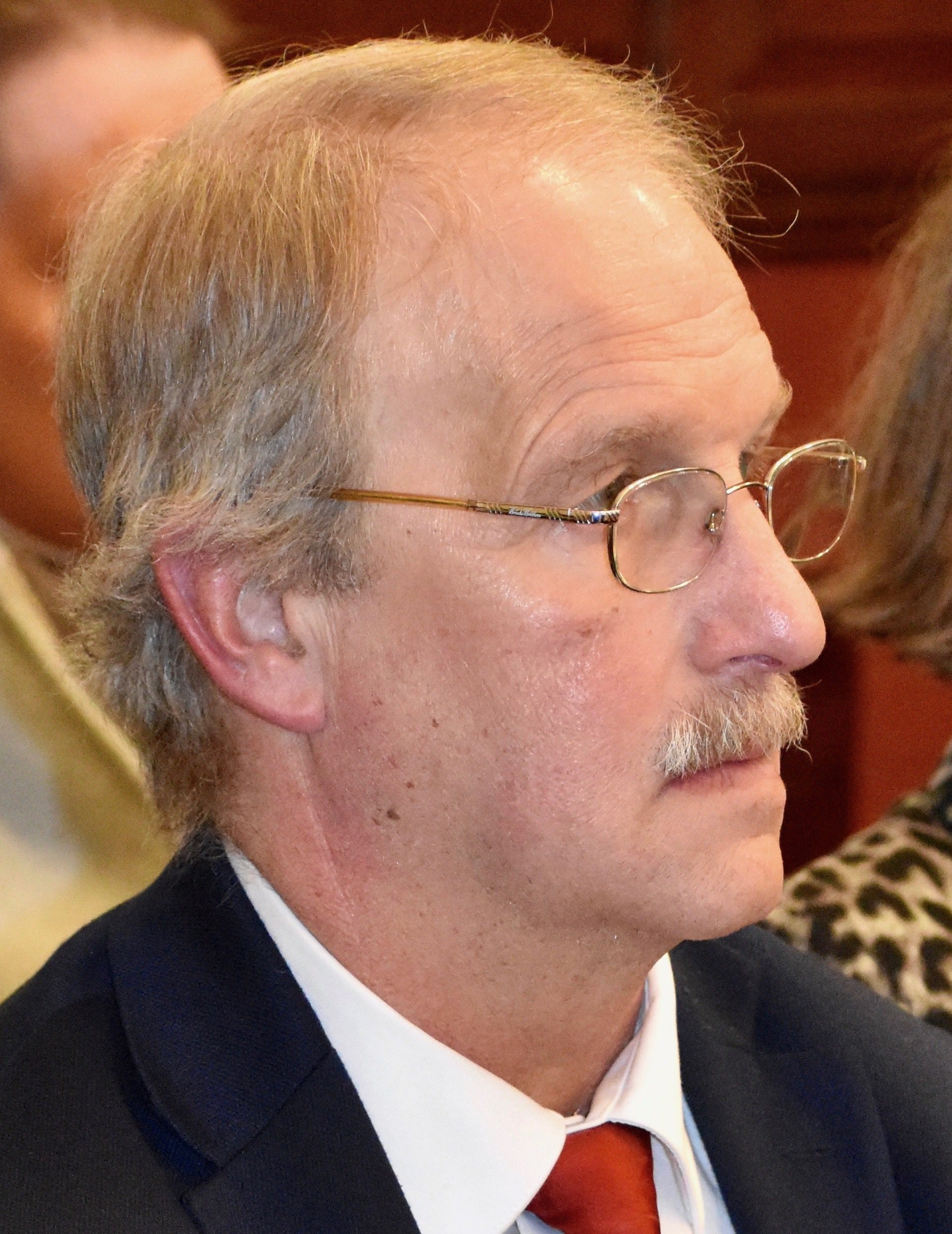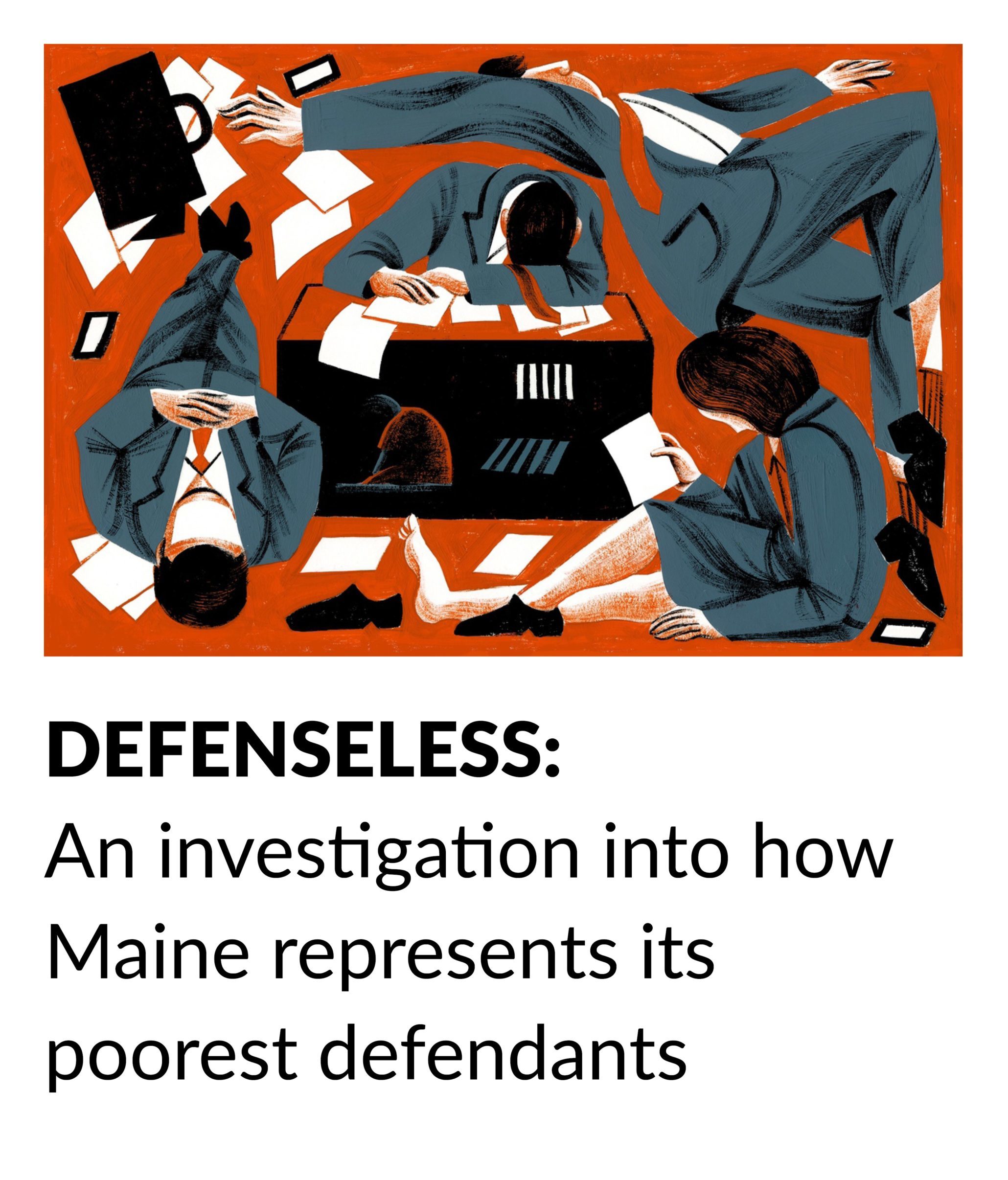Maine’s public defense agency operated without clear leadership and with few written policies that caused a cascade of problems with its finances and oversight of attorneys for the state’s poorest defendants, a scathing report released Monday by the state’s oversight agency shows.
The state Office of Program Evaluation and Government Accountability, or OPEGA, found that weak oversight by Maine’s public defense system threatened its mandated purpose of ensuring “high quality representation to indigent criminal defendants.” It also found that its billing system was riddled with too many errors to determine — or correct — the cost of its shortcomings.
This latest report on the Maine Commission on Indigent Legal Services, or MCILS, threw further into question the effectiveness and quality of the legal defense Maine is providing to its poor.
“It’s almost like this statute was passed and then no rules were ever written,” said Government Oversight Chair Rep. Anne-Marie Mastraccio (D-Sanford) during the presentation of the report. “They have everything they need to figure out what they’re supposed to do, but the implications are pretty severe down the road if we’re not doing what we’re supposed to be doing for people who require indigent legal services. That really concerns me.”
OPEGA identified nine major deficiencies with the management of MCILS in the decade since it opened. Among the report’s main findings:
• An unclear delineation between the roles of the executive director and appointed commissioners causes weak oversight and creates the risk of “insufficient accountability” in how Maine provides indigent legal services.
• MCILS is under-staffed and uses current staff inefficiently.
• There are no established policies and procedures governing expenditures and payments. And MCILS’s expectations for billing practices may not be effectively communicated to attorneys leading to potentially incorrect billing.
• The current methods used by MCILS to audit attorney invoices are “limited, inconsistent, and also of limited scope, depth and effectiveness.”
Maine is the only state in the country with no public defenders. It instead relies on private attorneys contracted with MCILS and appointed by judges to manage all criminal, child protective and other legal matters where the defendant cannot afford to hire their own lawyer.
John Pelletier was selected as the state agency’s first executive director in 2010. Pelletier resigned on Wednesday citing a change of direction at the commission as his reason for leaving. His last day will be Dec. 11.
“When I was hired, the structure didn’t exist. We had a statute and no staff. The staff authorized by the Legislature was two attorneys, an accountant technician and an administrative assistant,” Pelletier said on Monday. “We have, since day one, been working every day to do what’s necessary to provide functional representation to Maine’s indigent population.”

Pelletier’s defense of the state agency rang hollow for Sen. Justin Chenette (D-Saco), co-chair of the Legislature’s Government Oversight Committee. Letters are being drafted urging the state auditor’s office and incoming Government Oversight Committee to use the report’s findings as a blueprint to write legislation next session that demands structural changes at MCILS, he said.
“I’m very frustrated that in 10 years we don’t have, basically, the foundational operations of the organization in place,” Chenette said. “You can’t go 10 years in a position as basically the boss of the organization and not have anything written down in terms of how you need to operate from a financial oversight standpoint. It’s executive director 101 class.”
The Government Oversight Committee fast-tracked an investigation into the finances and operations of MCILS in January, after a national expert on criminal defense systems and media reports in 2019 showed that upwards of 30 lawyers appeared to be billing unreasonable hours for legal defense work for the state, including one lawyer who billed as if she worked more than 80 hours a week.
OPEGA found that the magnitude of overbilling by attorneys was likely overstated, but the underlying problem of attorneys claiming to have worked a large number of hours was valid. A review of attorney time entries by OPEGA showed multiple attorneys who billed very long days or worked well over 40 hours a week.
A team of two analysts at OPEGA identified 224 instances when attorneys billed for over 24 hours on a single day, of which the vast majority traced back to just six attorneys, said OPEGA director Danielle Fox.
A joint investigation by The Maine Monitor and ProPublica published last month showed Pelletier had not reined in high billing attorneys, despite public statements otherwise. He said his office was following up with attorneys on excessively high hours and that “all” lawyers were responding. Commission records show less than one-fourth of attorneys had responded to Pelletier by late January and questions were unresolved for more than 12,000 hours — worth nearly $750,000.
MCILS’s records of attorney billing and staff corrections of errors are so sloppy that OPEGA could not conduct the high-level data analysis it originally envisioned, Fox said.
OPEGA was able to test the staff and technological systems at MCILS to see if either could detect double billing, high hours and other billing problems — issues that were raised in past reports, she said. OPEGA found the agency could not identify most errors.
Even when Pelletier did initiate internal investigations into attorney billing he accepted explanations at face value and did not have staff follow through on recouping overpaid funds.
Three attorneys who responded to Pelletier’s inquiries, “provided various explanations — none of which were challenged by MCILS staff,” according to the report.
Pelletier said on Monday that he investigated the alleged overbilling to the extent that the agency’s resources allowed to answer whether there was “intentional wrongdoing.” He was satisfied with the responses he received, though, none of the attorneys provided time records to support their explanations, Fox noted in her presentation to lawmakers.
David Carroll, executive director of the nonprofit Sixth Amendment Center, said OPEGA’s report was a vindication of the center’s finding last year, including that indigent defense in Maine is understaffed and underfunded. The new report affirms that MCILS has broad powers that it has never evoked, Carroll said.
Former Gov. Paul LePage, a Republican, said that it was time for Maine to switch to a public defender system, in response to OPEGA’s report.
“Each page details waste, cost overruns, lack of oversight, zero accountability and poor organization,” LePage said. “The damaging details might have surprised the members of the GOC (Government Oversight Committee), but not me. During my administration I repeatedly tried to fix this wasteful, ineffective system. But the Legislature and the Bar fought my attempts at reform.”
LePage twice submitted bills to transition Maine from a system of private court-appointed counsel to a contract model of defense. The switch never garnered support from lawyers or legislators.








